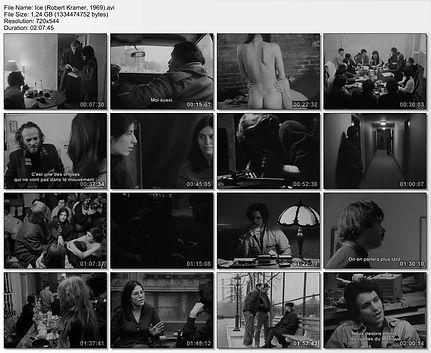

FILMOGRAPHY

USA/ 1969. 132 minutes, black and white, 16 mm (enlarged to 35mm)
Screen play and mise en scene: Robert Kramer
Cinematography: Robert Machover
Setting: New York, Vermont
Editing: Robert Machover, Norman Fruchter
Cast (uncredited) including: Tom Griffin (Ted), Paul McIsaac (Jim), Robert Kramer (Robert), Howard Loeb Babeuf (Howard Babeuf), Bread and Puppet theater, Dan Talbot (Kidnapped Colonel in Intelligence Service), David Stone (Robert’s torturer), Barbara Stone (woman in computer lab), Jonas Mekas, Linda Gordon (schoolteacher), Elinor Langer (speaker in living room meeting), Leo Braudy(\(\(\(\(\(\(present in dining room meeting), etc.
Production: David C. Stone for Monument Film Co. with the participation of The American Film Institute and Newsreel.
Production Associate: Barbara Stone
Included in the “Semaine de la critique” 1969 Cannes Film Festival.
-------------------------------------------
In an imaginary but not impossible future the United States is waging an imperialist war against Mexico. In an urban setting (New York) with occasional switches to the countryside (Vermont), a loosely organized group of revolutionaries and their affiliates plan for and stage armed insurrections against the repressive state and attempt to educate citizens forcibly and by seduction and to enlist their support. The film follows their work and daily lives to explore the political and personal conflicts that inevitably arise, the internal debates about strategy, about the use of violence, the timing of actions, the depth of commitment demanded. The individual scenes, filmed with hand-held camera, are linked by a mixture of narrative and thematic imperatives, and the film seems to walk a meandering line between fiction and documentary.
